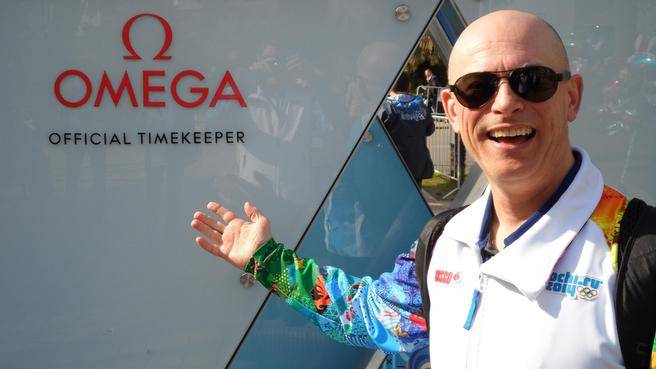After retiring as a high school computer science teacher, Paul Smith wasn’t expecting to become an entrepreneurial software developer and Olympic timer, but that is the post-retirement life of the founder of CurlTime, who initially developed his timekeeping software as a favour for his local curling club.
“The Sochi Olympics were fantastic. The Russians did a wonderful job. I keep pinching myself,” said Smith from his home in Labrador City, to which he had just returned after two weeks as one of two official timers of the curling competition.
Canadian curlers did spectacularly well at this year’s Olympics, with both men and women winning gold. Smith said he officiated as deputy chief timer during the women’s gold medal game, a role that involves supervising the timekeepers, communicating with the umpires, and making corrections to the clocks in the event the timekeeper makes an error.
Staying detached and focused on his duties wasn’t easy as play was close and the result came down to the last shot.
“I believe it was the first time in Canadian history that the women’s team was undefeated at the Olympics. The final game against the Swedes was very exciting, but I had to contain myself. I wasn’t allowed to cheer and jump up and down,” he said with a smile.
Smith has developed a new role as a timer at world events after developing his CurlTime software 10 years ago after friends at his local curling club, the Carol Curling Club in Labrador City, asked him to devise a timing system for use at an upcoming regional contest.
“That weekend, I devised something rather like a chess clock. I got feedback that it was easy to use. I developed it and it was eventually adopted by the World Curling Federation as their standard timing software for all major World Curling Federation events,” he explained.
Smith’s system was not actually used at the Sochi Olympics, as timing for all Olympic events is currently provided by Omega Timing of Switzerland, and Smith’s system is only suitable for curling.
But he has heard the timing system that Omega is currently using for curling will not be used in the future, which means Omega will undoubtedly begin development of a newer version for the next Olympics.
Smith would love it if his software could replace the Omega timing system used for curling, although he admits this may be “dreaming out loud.”
“Omega may say, ‘Why reinvent the wheel?’ but one never knows …” he mused. “I just brought on a programmer partner, based in Dusseldorf in Germany, and together we’re going to rewrite CurlTime because it’s written in a language that’s no longer supported by Microsoft. We also need a version for Macintosh. We will take the concepts and the experience of the last decade and completely rework it.”
The new CurlTime will be finished by the fall. Meantime, the current version is being used in more than 40 countries. Part of its appeal is the expense of arena clocks that can cost a curling club $10,000-$12,000. The World Curling Federation pays CurlTime an annual licensing fee so grassroots clubs can download the software for free.
Smith has now officiated at five world events and later this month, he’s off to Beijing for the Men’s World Curling event. He is also on the lookout for a corporate sponsor.
He confesses to being “very surprised” by all that has happened. “Not that I don’t think I have a good product, but when they started asking me to officiate at world events it became a double bonus. I’m getting to see the world because of this software, and who knows what the future will bring.”










